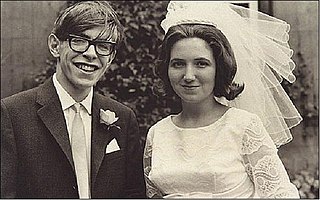A Quote by Jane Hawking
Living here in Cambridge, you had to have an identity. It was not enough to be a wife. So I did a Ph.D. in medieval Spanish poetry.
Related Quotes
A glance at the history of European poetry is enough to inform us that rhyme itself is not indispensable. Latin poetry in the classical age had no use for it, and the kind of Latin poetry that does rhyme - as for instance the medieval 'Carmina Burana' - tends to be somewhat crude stuff in comparison with the classical verse that doesn't.
A glance at the history of European poetry is enough to inform us that rhyme itself is not indispensable. Latin poetry in the classical age had no use for it, and the kind of Latin poetry that does rhyme - as for instance the medieval Carmina Burana - tends to be somewhat crude stuff in comparison with the classical verse that doesn't.
I've had days here and there where I would get discouraged because I wasn't a big star, but I've made a living ever since I was 27. Not a great living, but enough for me. I think actually being able to pay my rent and eat and perform is enough, and I did that for many years. Then I had some good years in there, too, where I made pretty good money.
It really takes growing up to treasure the specialness of being different. Now I understand that I've gotten to enjoy things that others have not, whether it's the laughter, the poetry of my Spanish language - I love Spanish poetry, because my grandmother loved it - our food, our music. Everything about my culture has given me enormous education and joy.
I didn't ever consider poetry the province exclusively of English and American literature and I discovered a great amount in reading Polish poetry and other Eastern European poetry and reading Russian poetry and reading Latin American and Spanish poetry and I've always found models in those other poetries of poets who could help me on my path.
When I got out of the military, I finished up my education at the University of North Carolina at Wilmington, and I had some mentors who said, 'You got what it takes. You should consider going to graduate school, getting a Ph.D. in neuroscience.' I didn't think I had what it took until somebody who had a Ph.D. told me I had what it takes.
































